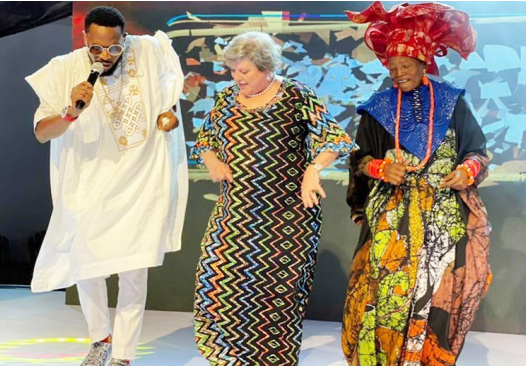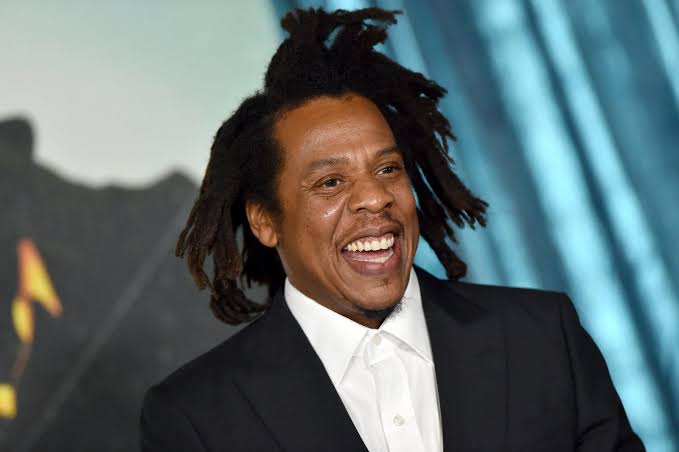Lifestyle
Nigerian Creative Titans Unite For Cultural Exchange

In a groundbreaking event, Nigerian celebrities Davido, Dakore Akande, Zulu Oyibo, and Idris Olorunnibe joined forces to advocate for enhanced cultural exchange and support for the entertainment industry. The gathering, organized by the President’s Advisory Council on African Diaspora Engagement in the United States (PAC-ADE), aimed to foster connections and drive diaspora-led investments in education, entrepreneurship, health, technology, youth and women’s empowerment, and the creative industries.
Afrobeats sensation Davido highlighted the global rise of African music, emphasizing the need to build on this momentum. Dakore Akande stressed the importance of joint productions and co-productions between the US and Nigeria, while Zulu Oyibo called for government support to upscale the industry. Idris Olorunnibe emphasized the need for infrastructure and talent development, underscoring the critical role of the diaspora in spreading African talent.
The event tackled pressing issues facing Nigerian talents, including work permits, visa support, trade agreements, funding, talent training, and content monetization. US Consul Will Stevens emphasized building on existing relationships between Nigeria and the United States, while Deniece Laurent-Mantey, Executive Director of the US President’s Advisory Council, highlighted the pivotal role of the African diaspora in amplifying the continent’s music, art, and culture.
Arun Venkataraman, US Assistant Secretary for Commerce for Global Markets, recognized the immense potential of Nigeria’s creative industries, citing their economic and social impacts. The event served as a platform for creative voices to shape the global narrative, bringing people together despite their differences.
The gathering demonstrated a united front among Nigerian creative titans, policymakers, industry leaders, and professionals, all converging to advance Nigeria’s creative industries on the global stage. As the PAC-ADE marks its first visit to the African continent, the event sets the stage for a new era of collaboration and exchange.
The Lagos event ignited discussions on diaspora-led investments and cultural exchanges, paving the way for a global movement that celebrates African talent and creativity. As the creative industries continue to shape the global narrative, Nigeria’s entertainment sector is poised for unprecedented growth and recognition.
Lifestyle
The Pitt, The Studio Dominate 2025 Emmy Awards

The Pitt, The Studio Dominate 2025 Emmy Awards
Hollywood’s biggest television stars gathered on Sunday night for the 2025 Emmy Awards, where two productions, The Pitt and The Studio, emerged as the night’s biggest winners.
The Pitt, a gripping medical drama set in a bustling emergency room, clinched the coveted Best Drama Series, while The Studio, a satirical comedy about Hollywood politics, not only won Best Comedy Series but also shattered Emmy records with a clean sweep across multiple categories.
In a defining moment of the ceremony, veteran actor Noah Wyle earned his first-ever Emmy after decades in television, winning Lead Actor in a Drama Series for his performance in The Pitt.
Wyle, visibly moved, dedicated the award to healthcare workers worldwide, describing the show’s success as “a reflection of the courage and sacrifice of those who save lives every day.”
Seth Rogen’s The Studio proved unstoppable in the comedy category, taking home 13 trophies — the highest number of wins for a comedy series in a single year, according to the Television Academy.
Rogen, who co-created and starred in the show, also walked away with Lead Actor in a Comedy Series, his first Emmy.
He called the triumph “the proudest moment” of his career.
Critics have hailed The Studio for its sharp wit and insider satire, offering audiences a humorous but piercing look into Hollywood’s inner workings.
The series’ record-breaking feat now places it among the most celebrated comedies in Emmy history.
Industry watchers say the dual success of The Pitt and The Studio signals a shift in Hollywood storytelling, with both shows reflecting real-world struggles and triumphs in institutions — healthcare and entertainment — that resonate with global audiences.
The victories came against formidable contenders including Severance and Abbott Elementary, underscoring the appetite for fresh narratives that balance cultural depth with entertainment.
As the night drew to a close, the Emmy spotlight rested squarely on The Pitt and The Studio — productions that not only entertained millions but also reinforced television’s enduring power to mirror society.
Lifestyle
Jay-Z Emerges World’s Richest Musician with $2.5bn Net Worth — Forbes

Jay-Z Emerges World’s Richest Musician with $2.5bn Net Worth — Forbes
American rap icon and business mogul, Sean Carter, better known as Jay-Z, has been declared the world’s richest musician by Forbes with an estimated net worth of $2.5 billion.
The Roc Nation founder’s fortune cuts across multiple ventures, including his luxury champagne brand, Armand de Brignac (Ace of Spades), cognac label D’Ussé, and his stakes in real estate, hospitality, technology, and startups.
He also reaped huge gains from the sale of music streaming platform Tidal and his former clothing line, Rocawear.
Jay-Z’s rise to the top further cements his reputation as not only a cultural force but also one of the most successful music entrepreneurs globally.
On the female side, American pop star Taylor Swift retained her crown as the richest female musician, with a net worth of $1.6 billion.
Forbes noted that Swift remains the first artist in history to attain billionaire status solely from music and touring earnings.
Lifestyle
Single Mothers Can’t Raise Boys Into ‘Proper Men’ – Jim Iyke

Single Mothers Can’t Raise Boys Into ‘Proper Men’ – Jim Iyke
Nollywood star, Jim Iyke, has stirred controversy with his recent remarks on parenting, insisting that single mothers cannot raise a boy into a “proper man” without the presence of a male figure.
Speaking during an interview with Okay 101.7 FM in Accra, Ghana, the actor argued that women are naturally built to nurture but lack the disciplinary balance needed to raise boys into men.
“A woman can’t raise a man. You can’t, you’re not built for it. A single mother cannot raise a man properly. You need a male influence – go get your brother that’s doing well or your father or even any man that you trust. There has to be a male presence in it [raising a boy child],” Iyke said.
He further maintained that boys require strict guidance from men in order to grow into disciplined adults.
“Because women are naturally built to nurture, to love. And then what you’re going to raise is a very weak man? He is going to be everything like the men that left you. You need somebody that would discipline him, tell him ‘No’ as often times as possible, and put him in the grind,” he added.
Iyke’s remarks have since triggered heated debates across social media, with some agreeing with his perspective while others accused him of undermining the struggles of single mothers who successfully raise responsible children without male support.
The actor, who has often been outspoken on social issues, did not back down on his position, stressing that the absence of a male role model leaves a critical gap in raising boys.












